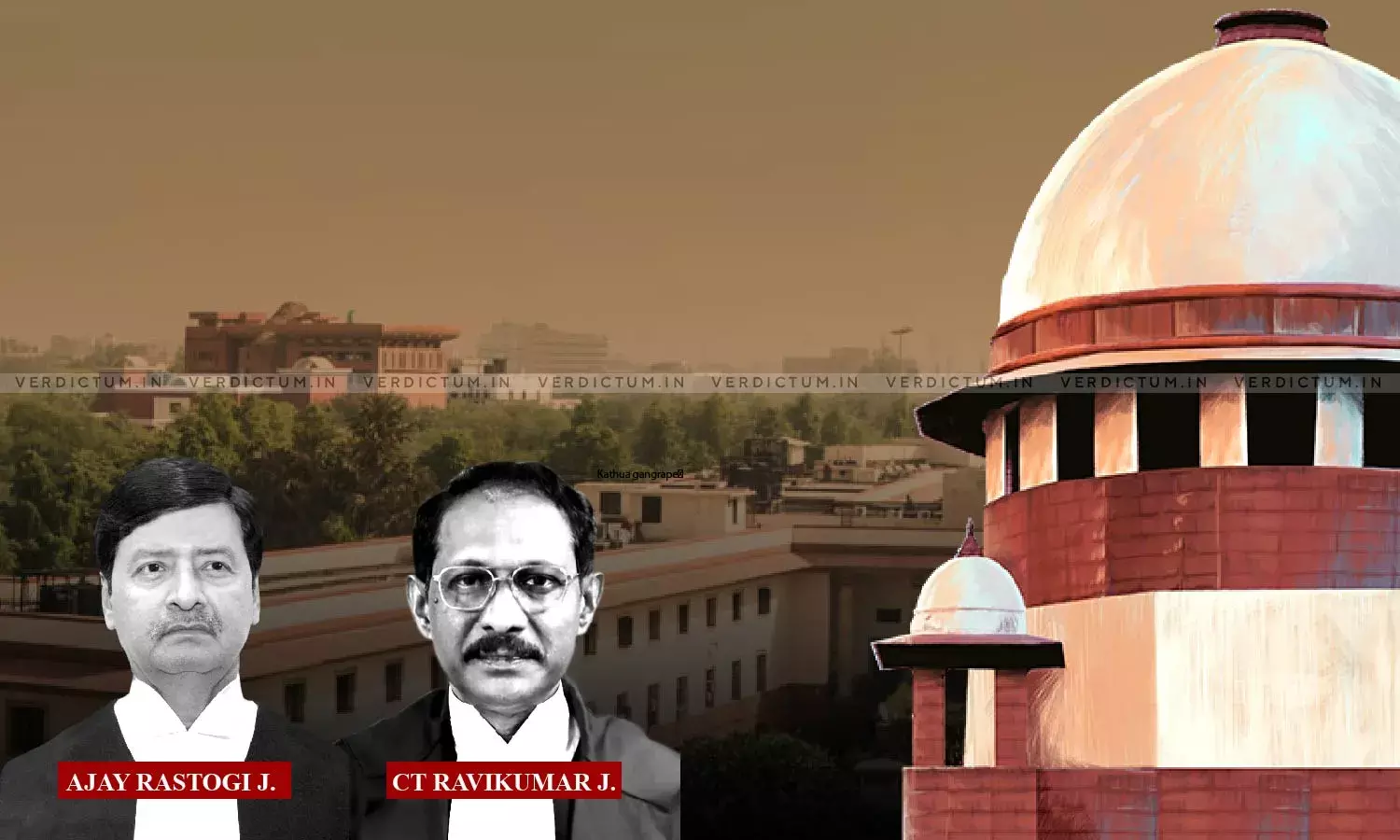SARFAESI ACT| SC Deprecates HC's Practice Of Entertaining Writ Petition Without Exhausting Statutory Remedy Of Appeal

The Supreme Court has deprecated the High Court's practice of entertaining a Writ application in the exercise of its powers under Article 227 of the Constitution without exhausting the statutory remedy of appeal in a SARFAESI matter.
The bench of Justice Ajay Rastogi and Justice CT Ravikumar observed, "In the instant case, although the respondent borrowers initially approached the Debts Recovery Tribunal by filing an application under Section 17 of the SARFAESI Act, 2002, but the order of the Tribunal indeed was appealable under Section 18 of the Act subject to the compliance of condition of predeposit and without exhausting the statutory remedy of appeal, the respondent borrowers approached the High Court by filing the writ application under Article 226 of the Constitution. We deprecate such practice of entertaining the writ application by the High Court in exercise of jurisdiction under Article 226 of the Constitution without exhausting the alternative statutory remedy available under the law."
The Court further in this context observed that the circuitous route appeared to have been adopted to avoid the condition of predeposit contemplated under the 2nd proviso to Section 18 of the SARFAESI Act, 2002.
In this case, the Telangana High Court, by its order dated November 20th, 2019 had set aside the e-auction sale held by the Bank (secured creditor) under the provisions of the SARFAESI Act, 2002 on the following grounds -
- that there was as error in description of the scheduled property in e-auction sale notice dated February 25th, 2015 and that was considered to be a serious infirmity in the process as because of the wrong description of the property put to auction, that property could not have fetched the value which it ought to have fetched in the course of business.
- that there was a clear breach of Rule 9(4) of the Rules 2002, auction price was to be deposited by the auction purchaser within 15 days which expired on 10th April, 2015 but it was admittedly deposited by the auction purchaser (appellant) on 15th April, 2015.
Advocate Tatini Basu appeared on behalf of the appellant and submitted that with regard to description of mortgage property concerned, no objection was raised by the respondent borrower either before the Tribunal or before the High Court. It was further submitted with regard to noncompliance of Rule 9(4) of the Rules, 2002, that the time under Rule 9(4) of Rules, 2002 is not that sacrosanct and that the appellant was ready and willing to deposit the balance of 75% of auction bid before April 11th , 2015 but because of the intervention made by the Tribunal, there was a delay of four days in depositing the balance amount.
Advocate for the respondent borrowers submitted that the violation of Rule 9(4) of Rules, 2002, is in itself sufficient to nullify the e-auction sale initiated by the respondent Bank. It was also submitted that error in the description of the scheduled property created confusion in the minds of the participants of the e-auction.
Advocate Krishna Dev Jagarlamudi appeared on behalf of the respondent bank and raised an objection that order of the Tribunal was appealable order before the Debts Recovery Appellate Tribunal under Section 18 of the SARFAESI Act, 2002 and the petition filed by the respondent borrowers directly before the High Court against the order of the Tribunal was not maintainable.
The Court observed with regard to wrong description of property that the respondent borrowers failed to demonstrate any prejudice being caused on account of the inadvertent error being caused in description of the mortgaged property and said that "the respondent borrowers failed to demonstrate any prejudice being caused on account of the inadvertent error being caused in description of the mortgaged property."
The Court further observed with regard to the breach of Rule 9(4), 2002 that in the facts and circumstances of the case, a delay of four days would not frustrate or annul the auction proceedings when the conduct of the borrowers is in itself doubtful. "delay in depositing 75% of the bid amount by four days in no manner would frustrate the rights of the parties inter se, more so, when the conduct of the borrowers in getting extension orders on two different occasions and still not depositing Rs.6 lakhs in terms of the order of the Tribunal would clearly reflect that the intention of the borrowers was only to frustrate the auction sale by one reason or the other, which they could not succeed."
The Court, with regard to the objection raised by the respondent Bank that the respondent borrowers should have availed the effective alternative remedy, observed that "although the respondent borrowers initially approached the Debts Recovery Tribunal by filing an application under Section 17 of the SARFAESI Act, 2002, but the order of the Tribunal indeed was appealable under Section 18 of the Act subject to the compliance of condition of predeposit and without exhausting the statutory remedy of appeal, the respondent borrowers approached the High Court by filing the writ application under Article 226 of the Constitution. We deprecate such practice of entertaining the writ application by the High Court in exercise of jurisdiction under Article 226 of the Constitution without exhausting the alternative statutory remedy available under the law. This circuitous route appears to have been adopted to avoid the condition of pre-deposit contemplated under 2nd proviso to Section 18 of the Act 2002."
Accordingly, the Apex Court allowed the Appeal.
Cause Title- Varimadugu Obi Reddy v B. Sreenivasulu & ors.
Click here to read/download the Judgment

